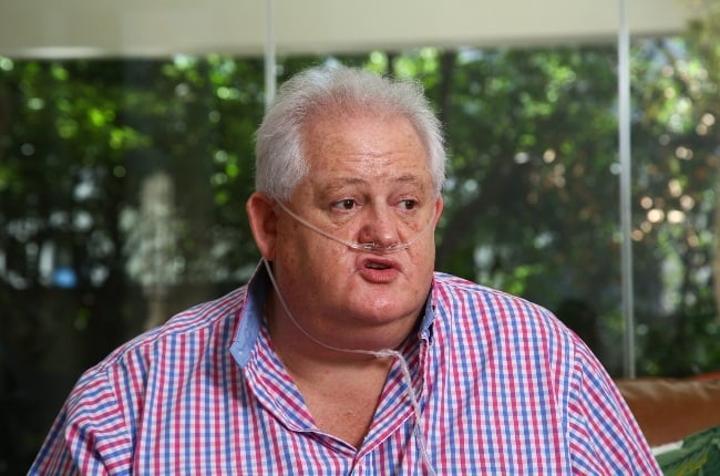
Alex Mitchley
Africa-Press – South-Africa. The South African Revenue Service has failed in its bid to get Bosasa corruption-accused Angelo Agrizzi to repatriate his foreign assets in Italy to pay the taxman more than R174 million he allegedly owes.
The Gauteng High Court in Pretoria, on Monday, dismissed SARS’ application in terms of the Tax Administration Act (TAA) to have Agrizzi hand over his assets in Italy, which includes property, luxury vehicles and money held in two bank accounts.
The court also ruled in favour of Agrizzi’s counter-application to review SARS’ decision to refuse his application for suspension of payment of his assessed tax liability.
State Capture and tax debts
The matter finds its genesis in the evidence led before the State Capture Commission, where Agrizzi testified about Bosasa’s dodgy dealings with the government. Agrizzi was the chief operation officer at the company at the time.
In the judgment delivered on Monday, Judge Basson said that as a result of the evidence, SARS said it had become aware of a large scheme of fraud, money laundering, racketeering and tax evasion involving Bosasa.
The allegations were investigated, and a tax inquiry was authorised. Agrizzi was called to testify at the tax inquiry.
“As a result of his testimony and subsequent investigations, SARS formed the view that the respondent [Agrizzi] received gross income as defined in Section 1 of the Income Tax Act, which he failed to declare in his annual income tax return,” Basson said.
Following income tax assessments from 2006 to 2019, SARS assessed that Agrizzi did not declare more than R190 million in taxable income.
SARS said Agrizzi’s tax liability amounted to more than R230 million. This amount was made up of his normal tax income, understatement penalties and interest on the underpayment of provisional tax.
According to the judgment, SARS agreed that Agrizzi could pay the debt in two amounts on two different dates in 2021. Days before the second payment was due, Agrizzi requested an extension to lodge an objection.
Agrizzi also submitted a request for the suspension of payment. This was declined by SARS.
After assessing Agrizzi’s objections, some of which were “partially allowed”, SARS reduced the amount owed from R230 million to R174 million.
Agrizzi indicated that he intended to appeal against SARS’ decision to disallow the remainder of his objections and the suspension of payment.
Agrizzi’s assets in Italy
Despite this, SARS approached the High Court with an application in a bid to compel Agrizzi to repatriate his assets outside of South Africa, particularly in Italy, to satisfy his outstanding tax debts.
Basson said the assets specifically listed in SARS’ notice of motion included:
SARS sought an order that assets be converted to cash and the funds be repatriated, whereafter the money be deposited into the trust account of SARS’ attorney.
Legally impossible
In the court application, Agrizzi raised three arguments against the repatriation application.
The court found in favour of SARS on the first two objections but found in favour of Agrizzi on the third.
Agrizzi was arrested and released on bail in October 2020. His bail was equal to the value of his fixed property in Italy.
As part of his bail conditions, Agrizzi was required to hand over the original title deed of the property and the National Prosecuting Authority (NPA) was also furnished with a signed guarantee secured by the property.
The court found the order was illegally impossible as it would result in a variation of the bail condition and could even result in Agrizzi’s arrest as the bail conditions require him to cede the Italy property as security for the State.
Basson also pointed out that the court could not consider what the NPA was willing to do in terms of changing the bail conditions as SARS didn’t cite the prosecuting body as a respondent, despite their direct interest in the matter.
Counter application
In Agrizzi’s bid to review SARS’ refusal to grant him a payment suspension pending the finalisation of objections or appeals to their assessments, the court found that the taxman lacked a rational connection to the TAA to ensure prompt payment.
“Considering the facts, there is no pressing need for SARS to collect the disputed tax, particularly as it’s accepted that the respondent will suffer irreparable hardship, lack of funds to pay the outstanding debt and that there is no risk of dissipation of assets,” Basson said.
The court ruled that the matter be remitted back to SARS for reconsideration of the suspension application by Agrizzi.
Crimes
Agrizzi is an accused in two matters that are currently before the court. In the first, he was charged with fraud and corruption relating to tenders between Bosasa and the Department of Correctional Services (DCS).
News24 reported that the criminal matter involves four tenders, valued at more than R1.8 billion, which were awarded to Bosasa and its subsidiaries between August 2004 and 2007.
These tenders were for catering and training services, the installation of CCTV cameras, the installation of perimeter fencing, the supply of a television system, and equipment monitoring.
The State contends that the tenders were scored through corrupt means.
In the second criminal matter, Agrizzi is accused of paying bribes to former ANC MP Vincent Smith.
Both cases have been delayed due to Agrizzi’s health, after he suffered a heart attack in 2020.
For More News And Analysis About South-Africa Follow Africa-Press





